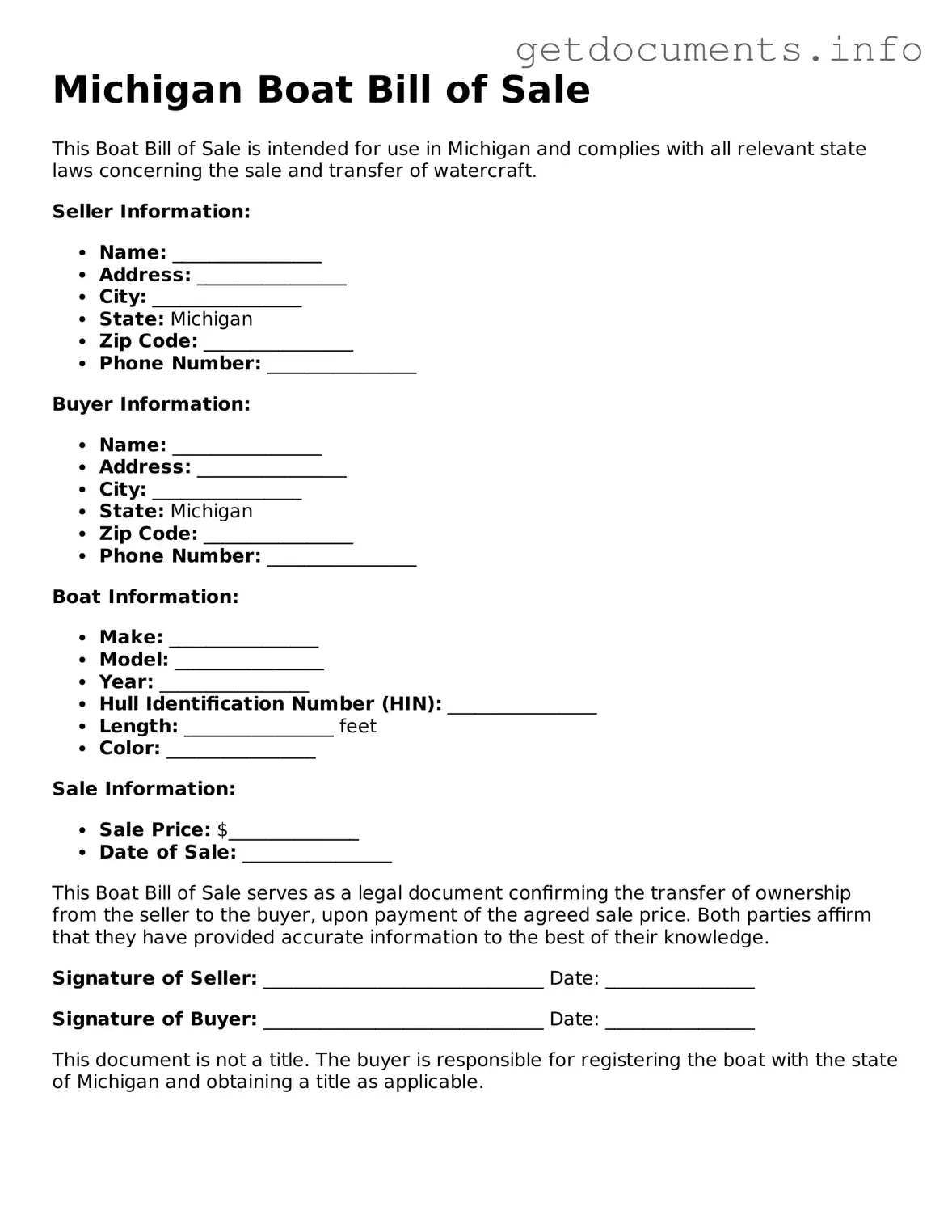Free Boat Bill of Sale Template for Michigan
The Michigan Boat Bill of Sale form is a vital document that facilitates the transfer of ownership for watercraft in the state of Michigan. This form serves as proof of sale, detailing essential information about the buyer, seller, and the boat itself. Understanding its significance can streamline the buying and selling process, ensuring all parties are protected and informed.
Ready to make a smooth transaction? Fill out the form by clicking the button below.
Access Boat Bill of Sale Editor

Free Boat Bill of Sale Template for Michigan
Access Boat Bill of Sale Editor
Got places to be? Complete the form fast
Fill out Boat Bill of Sale online and avoid printing or scanning.
Access Boat Bill of Sale Editor
or
⇩ PDF File
